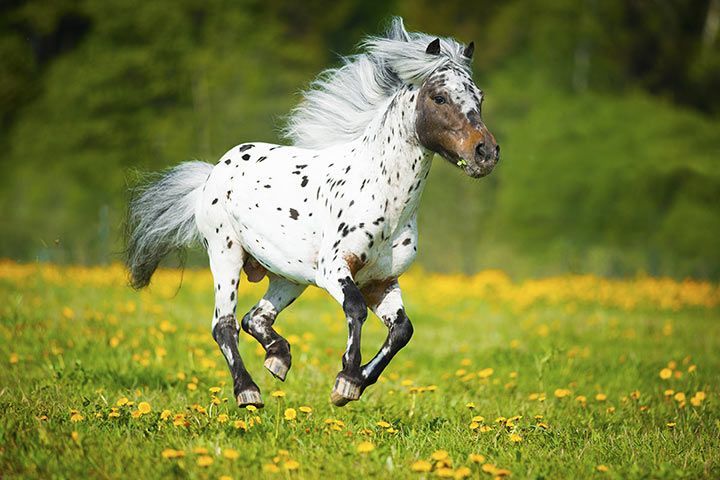
What Do Appaloosa Horses Eat for Optimal Health and Performance?
Share
As a health-conscious pet owner, understanding what Appaloosa horses eat is crucial for their well-being and overall performance. Known for their distinctive spotted coats and versatile abilities, Appaloosa horses require a well-balanced diet that supports their unique health needs. This article will explore the various dietary components essential for Appaloosa horses, ensuring they thrive in any environment.

The Basics of Equine Nutrition
Before delving into the specifics of what Appaloosa horses eat, its essential to grasp the fundamentals of equine nutrition. Horses are naturally herbivorous, meaning they primarily consume plant material. The major components of a well-balanced horse diet include:
- Forage - Grass and hay are the cornerstones of a horse's diet.
- Concentrates - Grains and supplements that provide energy and nutrients.
- Vitamins and Minerals - Essential for various physiological functions.

What Do Appaloosa Horses Eat?
When determining what do Appaloosa horses eat, its vital to consider their specific needs due to their activity level and lifestyle. Here's a detailed breakdown:
1. Forage: The Foundation of Their Diet
Like all horses, Appaloosas thrive on forage. This includes:
- Grass Pasture: Fresh grass is ideal for Appaloosas as it contains essential nutrients, fiber, and moisture that are crucial for digestion.
- Quality Hay: In cases where pasture isn't available, high-quality hay should be provided. Timothy, orchard grass, and alfalfa are excellent choices.
2. Concentrates: Balanced Energy Sources
While forage is primary, Appaloosa horses may require concentrates based on their workload. This includes:
- Grains: Oats and barley are excellent energy sources. Carefully measure portions to avoid excessive caloric intake.
- Commercial Feeds: Specially formulated feeds can provide a balanced blend of vitamins and minerals.
3. Supplements: Filling Nutritional Gaps
Some Appaloosas might need dietary supplements:
- Electrolytes: Important during hot weather or heavy work to replenish lost minerals.
- Vitamins and Minerals: A complete supplement can help meet nutritional deficits in their primary diet.

Feeding Practices for Appaloosa Horses
Implementing proper feeding practices greatly affects the health of Appaloosa horses. Consider these tips:
- Feed small, frequent meals rather than large meals throughout the day.
- Always ensure fresh and clean water is available.
- Avoid sudden changes in diet to prevent digestive issues.
Maintaining a Healthy Weight
Understanding what do Appaloosa horses eat also involves monitoring their weight. Overfeeding can lead to obesity, which poses risks of laminitis and metabolic disorders. Regularly assess their body condition and seek veterinary advice if necessary.

Specific Dietary Needs Based on Activity Level
The activity level of your Appaloosa will significantly influence their diet:
- Leisure Horses: More forage and minimal concentrates to maintain weight.
- Working Horses: Increased concentrates and additional energy-rich feeds.
- Competition Horses: Fine-tuned diets with specialized supplements for peak performance.
Common Myths About Horse Feeding
As a health-conscious owner, you might encounter several myths regarding horse diets. Here are a few:
- Horses Only Eat Hay: While hay is vital, horses require a mix of forage and concentrates for optimal nutrition.
- All Grains are Good: Not all grains are suitable, and overfeeding can cause health issues.
FAQs about Appaloosa Horse Diet
1. How much food should I give my Appaloosa horse?
It varies based on their weight, age, and activity level. Generally, they should receive 1.5 to 2% of their body weight in forage daily.
2. Can Appaloosa horses eat carrots as a treat?
Yes, carrots are safe and can be a tasty treat in moderation.
3. Should I provide supplements to my Appaloosa horse?
Supplements may be necessary depending on their feeding routine and physical activity. Always consult with a vet before adding anything new to their diet.
For more information on equine nutrition and best practices, check out the Basic Horse Care Guide.
As an Amazon Associate, I earn from qualifying purchases.
